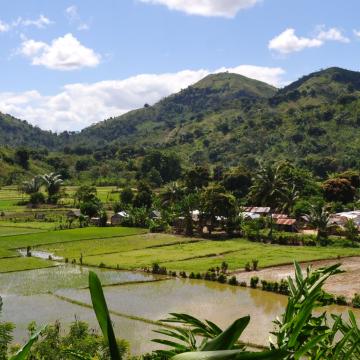-
NewsSatellite records show spectacular vegetation growth coinciding with the first year of the pandemic. Researchers investigated whether lockdowns played a role.
-
NewsMeet the PlanetLab, learn more about its research focus, lab members' experiences in the lab and the opportunities the lab offers Duke students.
-
NewsSmall-scale fisheries play a significant but overlooked role in global fisheries production and are key to addressing hunger and malnutrition while supporting livelihoods around the world, according to research featured on the cover of Nature.
-
NewsDuke study reveals low levels of common contaminants but high levels of other elements in waters associated with an abandoned lithium mine.
-
NewsMeet the Doyle Lab, learn more about its research focus, a lab member's experience in the lab and the opportunities the lab offers Duke students.
-
NewsEighteen emerging leaders from water and wastewater utilities across the United States have been selected as 2024-2025 Fellows of the Nicholas School for the Environment at Duke University’s Water Innovation Leadership Development (WILD) Environment+ program.
-
NewsAn international team of scientists has revealed high levels of toxic metals in global phosphate fertilizers using a variant of the element strontium to uncover such metals in soil, groundwater and possibly the food chain.
-
NewsMeet the Vengosh Lab, learn more about its research focus, PhD students' experience in the lab and the opportunities the lab offers Duke students.
-
NewsXavier Basurto is broadly interested in how people in small communities successfully organize themselves for collective action. His recent talk described his work in advancing the understanding of non-colonialist sustainability science: the prospects and limitations of self-organization, or self-governance, for social-ecological sustainability, particularly in the Global South.
-
NewsHard water is contaminated with glyphosate complexes in Sri Lankan communities plagued by chronic kidney disease
-
NewsAs the world undergoes the great energy transition — from fossil fuels to alternative energy and batteries — rare earth metals are becoming more precious.
-
NewsA new Duke University study finds that municipal waste incinerators' legacy of contamination could live on in urban soils.
-
NewsPeople in areas where drinking water is contaminated with PFAS often want to know their PFAS blood levels but have trouble gaining access to reliable testing, which traditionally involves having their blood drawn by a medical professional.
-
NewsTwo-year effort quantifies water affordability challenge, offers recommended solutions














